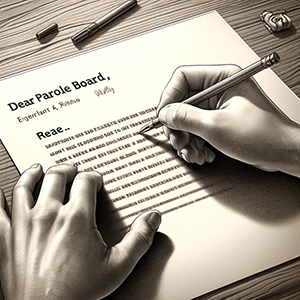It appears to be a complex task, that of the Ohio prison system’s attempt at balancing security concerns with incarcerated adults’ mental and emotional needs and human rights to maintain connections with our loved ones. Among the critical issues faced by the system is the limitation on the number of people an incarcerated individual can have on our approved call and visiting lists. Being personally affected by this, I will address the implications of allowing only 20 people on each list and explore the potential benefits of expanding these lists, drawing parallels to the Federal Bureau of Prison’s decision to increase their call list allowance.
Today, the Ohio prison system enforces a restriction that incarcerated adults can have only 20 individuals on our approved phone call list and 15 on our approved visiting list, 20 in privileged housing areas. This limitation has far-reaching consequences for both us and our support network of family and friends, as maintaining connections with loved ones is known to have positive impacts on an incarcerated individual’s rehabilitation and restoration into society.
Research into various nation’s criminal justice systems consistently shows that incarcerated individuals who maintain strong family and social ties are less likely to reoffend upon release. These connections provide emotional support, a sense of belonging, and the groundwork for stability.
One key objective of the Director of the Ohio Department of Correction, Ms. Annette Chambers-Smith, is to facilitate an incarcerated adult’s rehabilitation and successful reintegration. Limited contact with supportive individuals counters this objective and hinders access to opportunities for personal growth, education, and skill development.
In a noteworthy example, the Federal Bureau of Prisons (BOP) recognized the importance of expanding their call list allowance for prisoners. Prior to a significant policy change, the BOP permitted incarcerated adults to have 20 individuals on their approved call list. However, acknowledging the inadequacy of this limit, the BOP increased the allowance to 50 individuals.
I call on advocates for criminal justice reform to place emphasis on the importance of humanizing the prison experience and support our pathways to positive change. Proposing the expansion of the approved call list for incarcerated individuals in Ohio is a step toward achieving these goals. Advocates can point to the Federal Bureau of Prison’s decision as evidence that such reforms are not only feasible but also beneficial for all stakeholders involved.
I understand that prison officials must strike a balance between promoting healthy communication and preventing misuse of these privileges, which I see as a human need and rights. Regular phone monitoring has been in place to ensure that expanded call opportunities do not pose a security risk.
Addressing the limitations on approved contact lists for incarcerated individuals would represent a critical step toward a criminal justice reform. Regular communication with loved ones offers a lifeline of support and a sense of normalcy amid this often dehumanizing prison environment. By allowing us to maintain a broader support network, the Ohio prison system can contribute to improved mental health, greater prospects for rehabilitation, and reduced criminality, leading to reduced recidivism. It can also reflect a commitment to treating incarcerated adults with dignity and investing in restored citizenry, if we are to aspire towards normality.
To live for the people.

Founder & CEO of the Tranquil Earth Alliance





